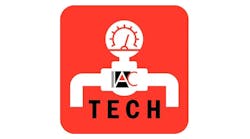After years of economic slow down, downsizing, and acquisitions, companies in the worldwide instrumentation and control industry are finding a staff shortage in both engineering and marketing management. But companies also realize that past practices of over employment stagnated their ability to function. As such, some firms are turning to industry-specific consulting outfits to supplement staff needs and serve as third-party advisers.
Marketing consulting companies — specifically those that have extensive industry experience — can provide effective company positioning and product branding, but users must be careful to look for credible third-party references. Thousands and sometimes millions of dollars are expended to influence the decision-making process of a specific market segment. Building product brand recognition can take years of strategic planning and implementation.
Knowing who, what, where, and when the branding process should take place is the key to early success. Some companies have already achieved brand recognition and must continue that never-ending task of influence. They must stay the course by providing good customer relationship management, or they risk losing what they have worked so hard to achieve. Getting the new customer is difficult; losing them to complacency is a catastrophe.
The marketing consultant must understand the entire business process — from order entry through customer retention — to truly be able to boost corporate growth through strategic market planning. Some highly specialized outsourcing firms can supply a complete turnkey department, while others will work project by project. There are also many national and international firms that can serve in both roles.
That said, companies looking to contract with a consulting firm should be aware, not all consultancies are created equal. Before employing a consulting firm a company must ask: What value does the consultancy offer?
Contracting a consulting firm should not require industry training. The consultant is compensated based on industry knowledge. Its value can only be described as concrete in terms of industry knowledge, meeting goals, meeting budget, and producing an optimal return on investment. In such an environment, the consultant can be a valuable catalyst in helping the company meet its goals. When contracting with a consulting firm, a company should look for the following characteristics:
- Perspective — Regardless of the circumstances, all consulting firms must first listen to gain perspective on the challenges and the goals that the client envisions.
- Resources — The firm must have market research resources and presentation techniques that align closely with the goals of the company.
- Experience — The firm must have previous experience in the company’s industry and be able to apply that experience to improve performance.
- Results — Delivering results in a relatively short period of time is an absolute necessity.
- Maintenance — Once all elements are firmly in place and all concerned are pleased with the initial performance, a more comprehensive program of support should be established to monitor and maintain results.
- Agent for Change — Since the consulting firm is not part of the in-house staff, it can provide an objective third-party view of the organization and its strengths and weaknesses.
Avoid Pitfalls
- Ask Questions — A true consulting firm will provide a complete company history, number of employees, and background experience. Poking around a company’s Web site can also be helpful. If the company doesn’t have a Web site, it is likely a warning sign about its legitimacy.
- References — References mean confidence. It is important to get the name of client contact, their telephone number, and fax for reference follow-up.
- Cost — Find out payment terms, travel charges, the cost of remote support, and emergency availability prior to engaging with a consultant. These types of costs can really kill a budget if they’re not properly prepared for.
- Experience — Experience is a tremendously important, and oft overlooked, factor in the selection process. The consulting firm must have a background that matches the application needs of the client.
About the Author
John F. Gannon is founder and senior partner of Consultants To Industry LLC, an international marketing and communication company focused on the instrumentation, control, and primary sensor markets worldwide. Formerly a vice president with Hoffer Flow Controls Inc., Mr. Gannon has many years of experience in the fluid handling industry.
For More Information: www.consultsindustry.com

